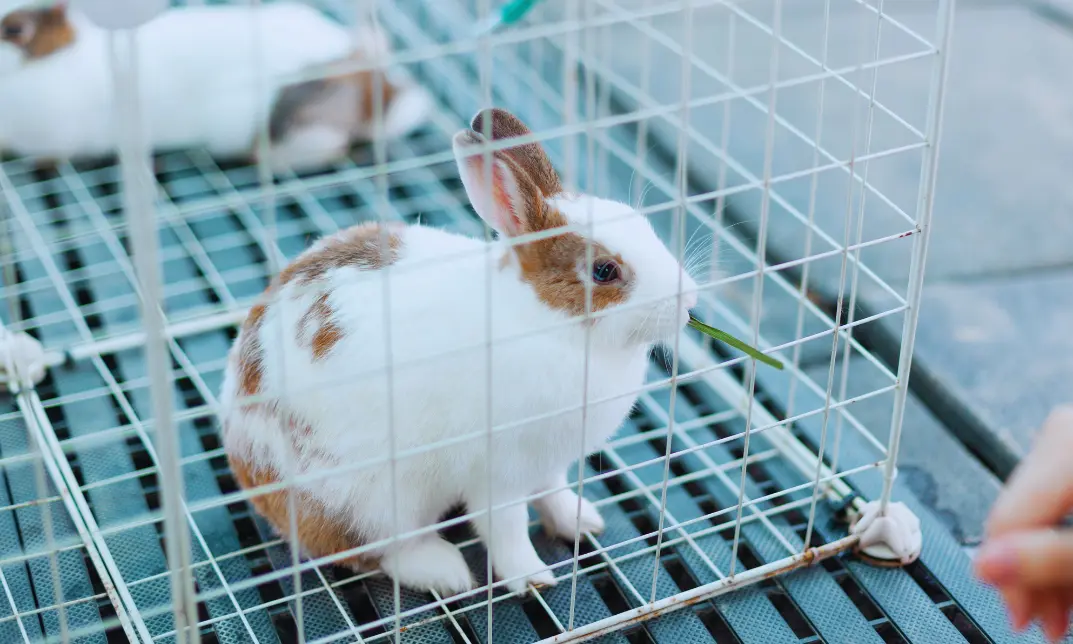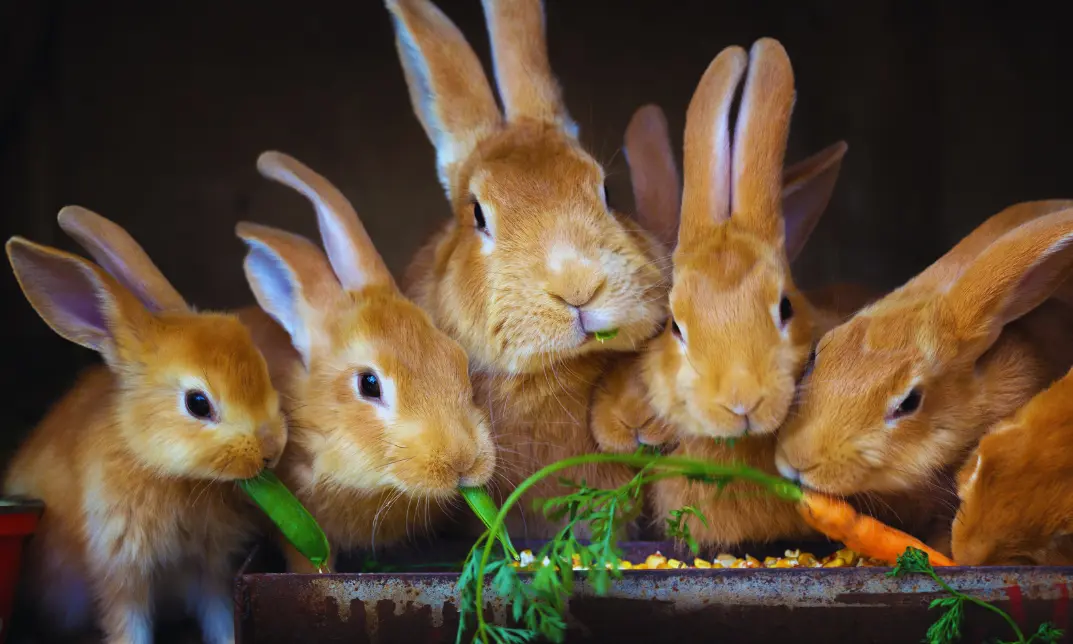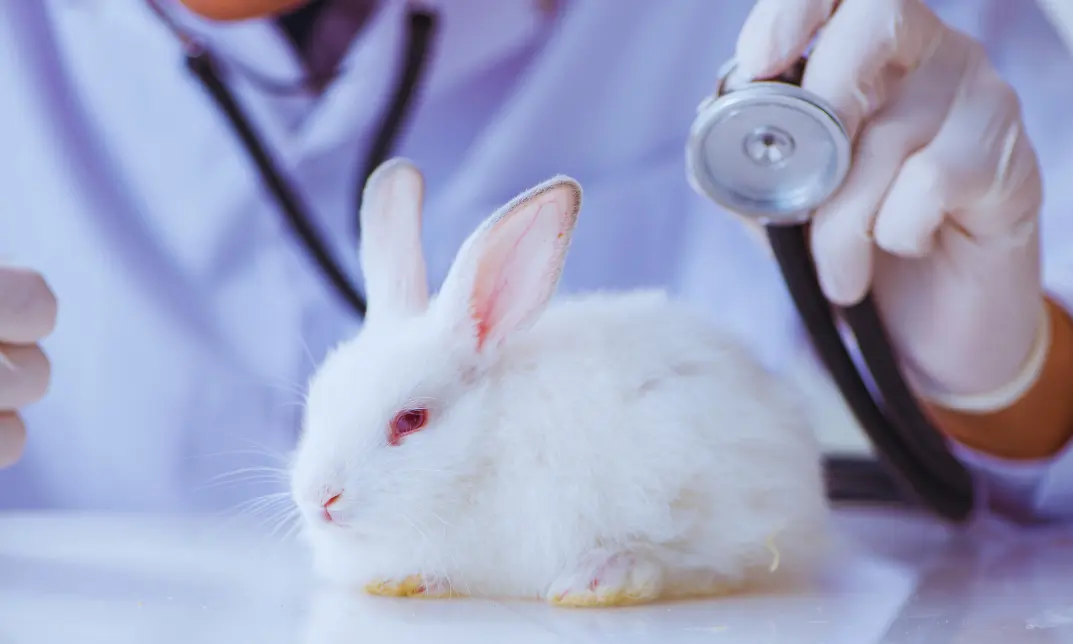Table of Contents
ToggleYour Perfect Guide to Pet Rabbit Care
You already know that rabbits are cute and beautiful. Now are you thinking about bringing one at home? Or right now, you brought a rabbit to your home. As house pet rabbits are becoming popular day by day. Many people think that rabbit care is often easy for beginner pets. Actually, bunnies have much more complicated needs.
However, like other pets, they need good care and quality time to be healthy and happy. Don’t get panic! we’re here to help. Rabbits are amazing pets, and we want you and your new rabbit to have the best life together.
Here are all of the things you need to know if you want taking care of a pet rabbit in your home.
(Also Read: The Cruciam Guide to large rabbit breeds you should know).
First Choose a Comfortable habitat:
Firstly, you have to ensure an organized, secure, and comfortable habitat for your pet. A large cage or hutch with plenty of room to hop around is needed. Make sure that it is easy to clean and ventilate. Because rabbits are social animals they want to stay clean and quiet place with their companions.

Also, they feel good about staying in a spacious place where they can ride or play easily. Rabbits always want to live together. So, make sure to get them in pairs, as they are social animals. The most important of rabbit care is providing them with toys and social enrichment.
Diet- Rabbit Care:
Rabbit eats plants, which means they are herbivores. Making a well-balanced diet for your rabbit is crucial for their overall health and well-being.
To keep your rabbit healthy and happy, here’s a simple guide to what they should eat:
Grass Hay: This is rabbit food number one! It keeps their tummy healthy and their teeth in good shape. Always have hay available for them. Good types include Timothy, meadow, and oat hay.
Green Veggies: Rabbits love leafy greens like kale, lettuce, and parsley. These are great for them but shouldn’t be the biggest part of their meal. A variety of three different greens a day is perfect.
Treats: Now and then, give your bunny some fruit or veggie treats like apples or carrots. Just a little bit, though, because they’re quite sugary.
Pellets: Ideally, commercial pellets should only be 10% of a rabbit’s diet. These are like rabbit biscuits and should only be a small part of their diet. Too many can make your bunny chubby and not so good at chewing the hay they need for their teeth.
Avoid Certain Foods: Keep away from starchy or fatty foods like bread, nuts, and cereals. These aren’t good for rabbits.
Fresh Water: Always have clean water available for your bunny to drink.
Please note that lots of hay, some greens, a few treats, minimal pellets, and fresh water is the key to happy, healthy rabbit care!
HANDLING For Rabbit Care:
When holding your bunny, remember their back is very delicate and can easily get hurt if they kick hard. So, always support their bottom. Don’t lift them by the ears because it hurts them and isn’t needed. Instead, gently hold them over the shoulders and scoop them up under the chest. Use your other hand to support their back legs when lifting them.
If you’re new to handling rabbits, try doing this close to the ground. This way, if the bunny jumps out of your arms, they won’t have far to fall.
Rabbits care Nutrition:
Rabbits are great pets that live up to 10 years with the right care. Everyone asks A general question: what do I need for my rabbit? They need a safe place to live, away from dangers if outside, and no chewable hazards like wires if inside.

Their diet is special because they eat mostly high-fiber foods like hay, which helps their digestion. They also eat a type of poop called cecotropes to get more nutrients, which is normal for them.
Rabbit food is checked by experts to make sure it’s safe and healthy. Rabbits need a mix of protein, fiber, and other nutrients to stay healthy. It’s important to feed them the right kind of food, especially lots of hay and some veggies.
Young rabbits, called kits, start with their mom’s milk and then move on to solid food. Adult rabbits eat less protein but need lots of fiber to keep their tummies happy and avoid getting too fat.
So, taking good care of a rabbit means giving them a safe home, the right food, and lots of love. This helps them live a long and happy life.
Regular Exercise
Rabbits are active creatures. They need daily exercise to stay healthy and content. A secure area where they can hop, run, and explore is essential. Exercise not only keeps them physically fit but also mentally stimulated.
Health Checks
Regular check-ups with a vet familiar with rabbits are vital. Vaccinations, parasite control, and dental care are key aspects of their health regime. At home, keep an eye out for any changes in their behavior or eating habits, as these can be signs of illness.

Social Needs for Rabbit Care
Rabbits are social animals and thrive on companionship. Bonding with your rabbit through gentle handling and playtime is important. If possible, consider having more than one rabbit to prevent loneliness, ensuring they are properly introduced and compatible.
Enrichment
Mental stimulation is as important as physical exercise. Toys, tunnels, and gnawing blocks can prevent boredom and destructive behaviour. Regularly changing their environment or playthings will keep your bunny engaged and curious.
Conclusion- Rabbit Care
Caring for rabbits involves understanding and catering to their specific needs, from their living environment and diet to their social and health requirements. Remember, a happy rabbit is one that feels safe, loved, and stimulated both physically and mentally. By following the guide, you can create a nurturing and joyful home for your bunny companion.
Rabbits are not just pets; they become part of the family, bringing laughter and happiness to our lives. Let’s ensure we give them the care and affection they deserve.
Trending FAQs on Rabbit Care
Q: How often should I clean my rabbit’s cage?
A: Clean the cage at least once a week, with spot cleaning of soiled bedding and food dishes as needed.
Q: Can rabbits live happily indoors?
A: Absolutely! Indoor rabbits can become a part of the family, interacting more with their human companions. Just ensure their living area is safe and rabbit-proofed.
Q: Do rabbits need vaccinations?
A: Yes, rabbits require vaccinations against certain diseases. Your vet can advise on the necessary vaccinations in your area.
Q: What should I do if my rabbit stops eating?
A: If your rabbit stops eating or shows signs of discomfort, seek veterinary attention immediately. Rabbits can deteriorate quickly when ill.
Q: what do you need for a rabbit Care or what do you need for rabbits?
A: For rabbit care, you’ll need the following essentials:
- Housing: A spacious cage or hutch, larger for outdoor setups. It should be secure and sheltered from extreme weather.
- Bedding: Straw, hay, or recycled paper bedding to line the cage floor, providing warmth and comfort.
- Food: High-quality hay should be the bulk of their diet, supplemented with rabbit pellets and fresh vegetables like kale and carrots.
- Water Bottle or Bowl: A constant supply of fresh water is crucial, provided in a drip-feed bottle or a sturdy bowl.
- Litter Box: For litter training, along with safe, absorbent litter material like paper-based or wood-based products.
- Toys and Chew Items: To prevent boredom and help wear down their teeth, include items like wooden chew toys, tunnels, and balls.
- Grooming Tools: A soft brush for regular grooming, is especially important for long-haired breeds.
- Nail Clippers: To keep their nails at a comfortable length.
- Carrying Case: For safe transport to the vet or when traveling.
- First-Aid Kit: Basic supplies for minor injuries, along with contact information for your vet.
Q: How to care for a bunny?
A: To care for a bunny, ensure they have a spacious living area, either indoors with a cage or outdoors in a secure hutch. Their diet should primarily consist of hay, complemented with fresh vegetables and a small amount of rabbit pellets. Fresh water must be available at all times. Regular vet check-ups, including vaccinations and dental care, are crucial. Keep their living space clean and consider litter training for easier maintenance. Additionally, provides ample time for exercise and mental stimulation.
Q: Are rabbits low maintenance?
A: Rabbits are not low-maintenance pets; they require a balanced diet, regular exercise, social interaction, and frequent habitat cleaning. Their health needs, including dental rabbit care and vet check-ups, also demand careful attention.
Written by: Rabbit Care World



